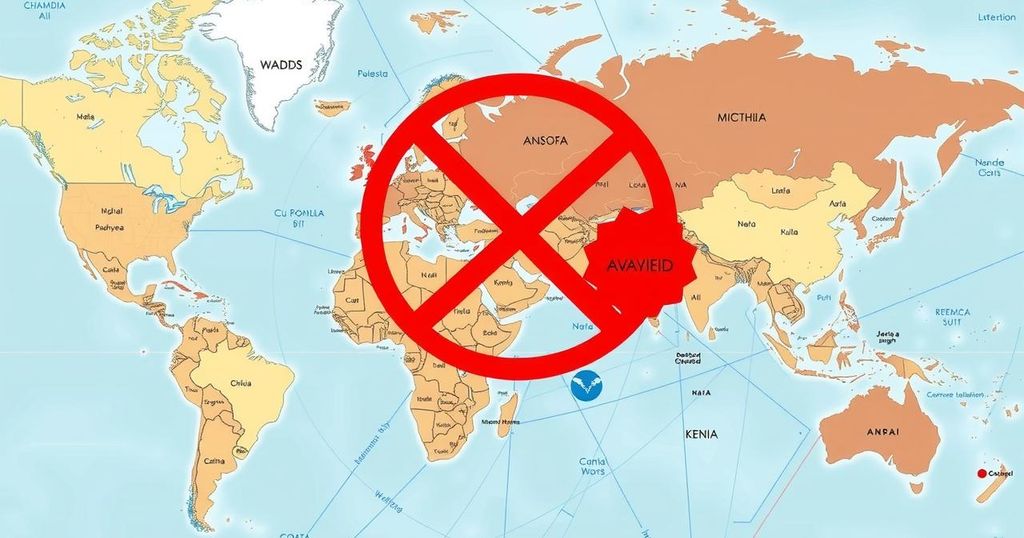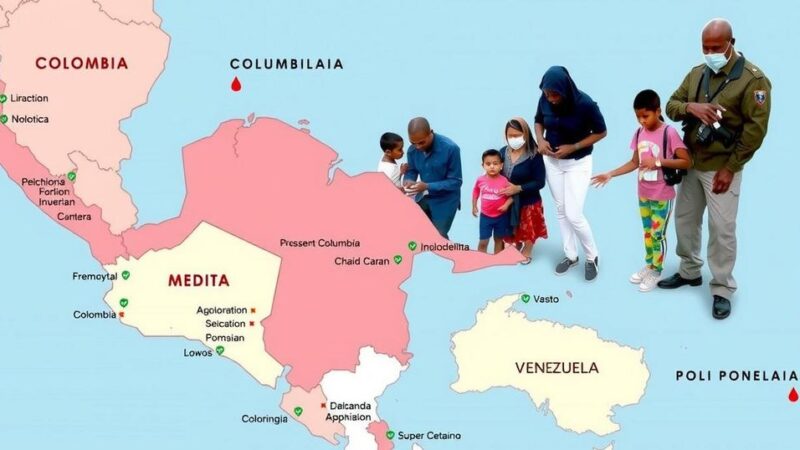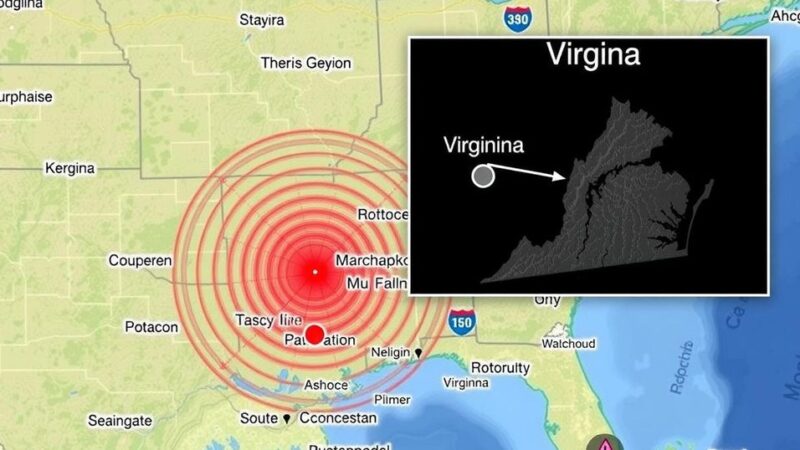The U.S. has placed twenty countries under a “Do Not Travel” advisory due to ongoing safety risks, including armed conflicts and political instability. This reflects global instability and has serious implications for the tourism industry, prompting travelers to reconsider their plans. Strategies must be implemented to enhance safety in travel while maintaining economic stability in heavily tourism-reliant regions.
On January 14, 2025, the U.S. State Department issued a “Do Not Travel” advisory for twenty countries, warning American citizens against travel to regions classified under Level 4—the highest risk designation—due to significant safety concerns. Countries listed include Russia, North Korea, Iran, Iraq, Ukraine, Afghanistan, Belarus, Syria, Lebanon, Libya, Somalia, Sudan, Venezuela, and Yemen. This advisory reflects growing global instability and highlights the necessity for travelers to prioritize safety when considering international journeys. The implications of this advisory are profound, impacting international tourism, the travel industry, and perceptions of safety among prospective travelers.
The primary objectives of the advisory are to inform travelers about ongoing armed conflicts, political instability, terrorism, and civil unrest in the listed countries. For instance, the conflict in Ukraine, combined with civil wars in Yemen and Syria, creates perilous conditions for travelers. Areas such as Somalia, Libya, and Iraq continue to face threats from extremist groups, while Belarus and Venezuela are undergoing significant political turmoil. These conditions make emergency services and healthcare support in these regions unreliable, further exacerbating travel risks.
The repercussions of this travel advisory extend beyond individual travelers. Countries reliant on tourism, such as Venezuela and Lebanon, may encounter economic strain due to reduced international visitor numbers. Airlines, tour operators, and hospitality industries in these regions may also see significant changes to their business due to a decrease in travelers. Furthermore, travel insurance policies might be revised or limited concerning these high-risk destinations. Airlines may also reassess flight routes, leading to disruption in global air travel connectivity.
In light of these evolving travel challenges, there are essential measures that travelers should consider. Consulting the U.S. State Department’s Travel Advisory page for updated safety information is crucial. It is also advisable for travelers to ensure their insurance covers potential cancellations or emergencies while traveling in high-risk regions, and to have contingency plans in case of emergencies.
Travel companies and tourism boards must adapt by promoting safer destinations, offering flexible booking policies, and utilizing technology for real-time updates on travel conditions. The necessity for standardized safety guidelines and improved crisis management must not be underestimated as they play a pivotal role in rebuilding trust in international travel.
As we move through 2025, global collaboration among governments, travel firms, and international organizations is essential to create safer travel environments. Such partnerships will help address current risks while fostering trust among travelers, ensuring the travel industry can thrive while prioritizing safety. The advisory underscores the necessity for informed decision-making by travelers, while simultaneously emphasizing the importance of resilience and adaptability within the travel sector.
The issuance of the “Do Not Travel” advisory by the U.S. government is a reflection of escalating global instability and the necessity for travelers to be aware of potential safety risks. By categorizing these regions under the highest threat level, the advisory serves not only as a warning but as a critical assessment of geopolitical circumstances that can jeopardize traveler safety. Understanding the diverse factors—ranging from armed conflicts to political unrest—helps contextualize the importance of this advisory within an increasingly complex international landscape. The resultant implications for tourism and travel industry stakeholders further underscore the necessity for a unified approach to addressing safety concerns and restoring confidence in global travel.
In conclusion, the U.S. State Department’s “Do Not Travel” advisory for twenty countries highlights the imperative for travelers to be vigilant and prioritize their safety amid rising global risks. The impacts on international tourism, travel-related businesses, and the strategies needed to navigate these challenges are significant. Collaboration between governments, travel companies, and international organizations is crucial to ensure that as international travel resumes, safety remains at the forefront, fostering trust and a secure environment for all travelers.
Original Source: www.travelandtourworld.com







